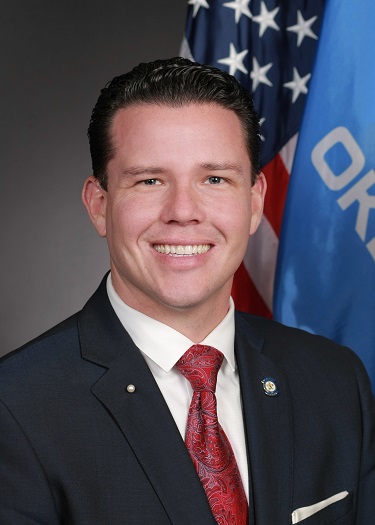Senate sends Oklahoma’s Promise bill to governor
 Sen. Jason Smalley
Sen. Jason Smalley
The Senate gave unanimous final approval Tuesday to legislation modifying Oklahoma’s Promise, the state-sponsored tuition program. Sen. Jason Smalley is the author of Senate Bill 529, which he said makes necessary changes to the program to protect the integrity and stability of the program.
“This bill tackles a number of areas concerning Oklahoma’s Promise to ensure that those students who truly need financial assistance can get it while also being inclusive of those degrees that take longer than the average program,” said Smalley, R-Stroud.
Oklahoma’s Promise allows eighth-, ninth- or 10th-grade students from families with an income of $50,000 or less to earn a college tuition scholarship. SB 529 changes the definition of income at the time of application in the 8th-10th grade from “taxable and nontaxable” income to “federal adjusted gross income” and increases the family income limit from $50,000 to $55,000.
The bill will stop payment for remedial courses beginning in 2018-2019 at an estimated annual savings of approximately $1.5 million.
SB 529 changes how often family incomes are checked. Currently, the statutes require that the second income check at $100,000 for Oklahoma’s Promise students be conducted only one time when the student starts college. Under this bill, the $100,000 check will be conducted every year the student is in college, beginning with the 2018-19 academic year for an annual estimated savings of about $1.5 million.
The measure also requires the State Regents to establish a maximum limit on the number of college credit hours covered by the scholarship. Currently, students are eligible to receive the scholarship for up to five years or the completion of a baccalaureate degree, whichever comes first. This will limit the number of credit hours paid for during the five year period.
Most undergraduate degrees require 120-124 semester credit hours but about 20 percent of degrees require more than 124 hours, including a number of engineering degrees and some teacher education degrees in specialty areas such as science and music. Undergraduate architecture degrees require up to 150 credit hours. Through the Administrative Procedures Act, the State Regents will establish a general maximum limit on credit hours while allowing exceptions to that limit for degrees requiring credit hours in excess of the limit. The limit is expected to be applicable to first-time entering freshmen college students in fall 2018. Once fully implemented, the change is expected to save about one to two percent of total program costs annually.
 Oklahoma Senate
Oklahoma Senate

